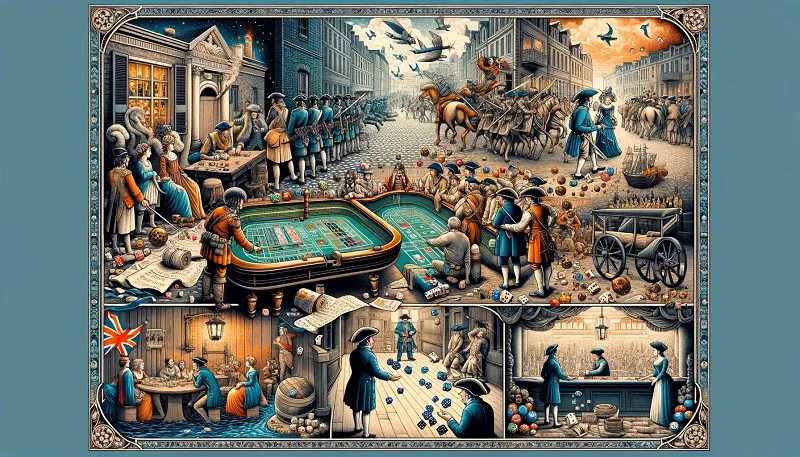
The Origins of Craps – First picture that comes to mind when you think of a land-based casino? A roulette wheel, a blackjack table, rows of slot machines, and dice, what are they? It’s dice, of course. Craps has a lengthy, colorful history that includes a few mysteries, making it not only one of the most well-known casino games in the world.
Because of this, we have made the decision to go deeply into the history of craps, starting from the beginning and traveling all the way to the present day to play craps online.
What Was The Origins of Craps?
Commence at the outset: from what source did craps originate? Though the question seems easy enough, the response is more complicated than you may imagine.
A few scholars claim that craps first appeared in classical Rome. Soldiers in ancient Rome would slice pig knuckles into dice-like cubes and toss them onto shields. It’s thought that the idiom “rolling the bones” in craps originated in Rome, yet there’s still no solid evidence linking this game to modern craps.

Still, the majority of historians think that the origins of craps may be traced back to a game called “Hazard,” which was invented during the crusades by Sir William of Tyre and his men around 1125 AD. This story claims that “Hazarth,” the fortress that Sir William and his knights were besieging, inspired the name of the dice game.
Although Hazard is supposed to have more intricate rules than current craps, the fundamentals are as follows:
- You can play the game with two dice and any number of players.
- “Shooter” or “caster” refers to the individual who is actually playing (throwing the dice).
- In the event that multiple players choose to begin, they all roll the dice, and the one with the highest result goes first.
- By rolling the dice, the player determines the primary point, which can be any number between 5 and 9.
- Following the establishment of the main, additional participants can place bets on whether the caster will win or lose.
- The player wins if the caster nicks or throws in (5 is pinched by 5, 6 by 6 or 12, 7 by 7 or 11, 8 by 8 or 12, and 9 by 2)
- The caster loses if they throw an out (ace or deuce-ace, often called crabs or craps), or roll 11 or 12 to a main of 5 or 9, 11 to 6 or 8, or 12 to 7).
- From Danger to “Crabs”
When Hazard eventually made it to France, it began to gain traction in taverns there after spreading throughout the Middle Ages and became especially popular with royalty in the late 17th and early 18th centuries. That’s where the name “Crabs” for the Hazard game originated, named for the worst case scenario of rolling a two.
History of the Name Craps
Thus, how did the “crabs” game turn into the “craps” game?
As it originally traveled to Nova Scotia, previously Acadia, one hypothesis claims that the word “craps” was a perverted version of “crabs,” “crebs,” and even “creps,” as it was later known over the pond in Louisiana. After being scattered throughout the French province, the Cajuns, who are native French speakers, brought the game of “crebs” or “creps” with them to New Orleans.
Though there is another legend that claims the name of the game came from the way people would crouch when playing dice in the street—as in, like “toads,” or “crapaud” in French.